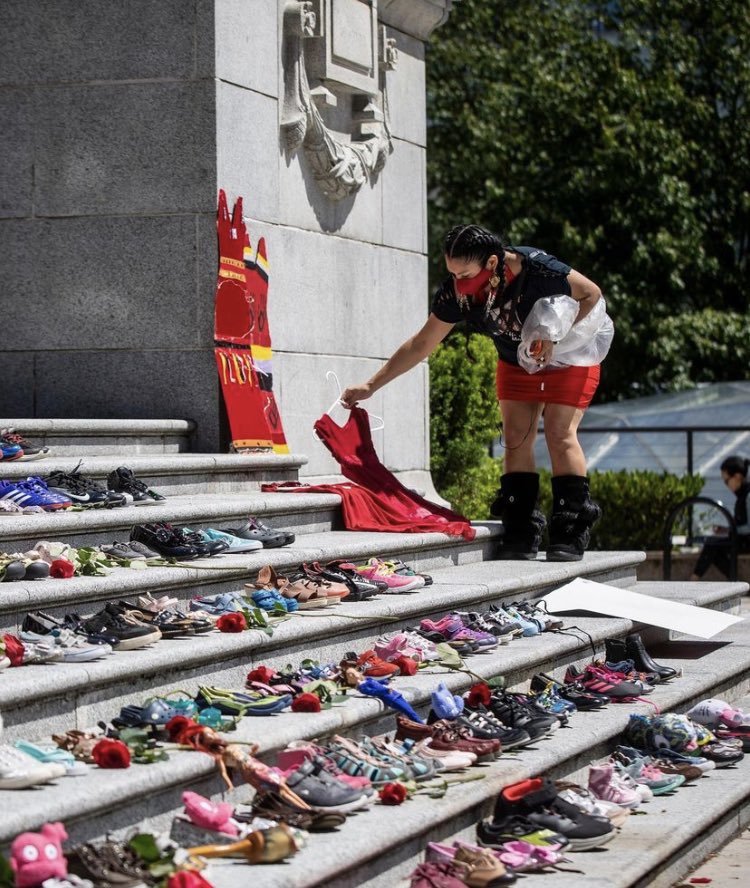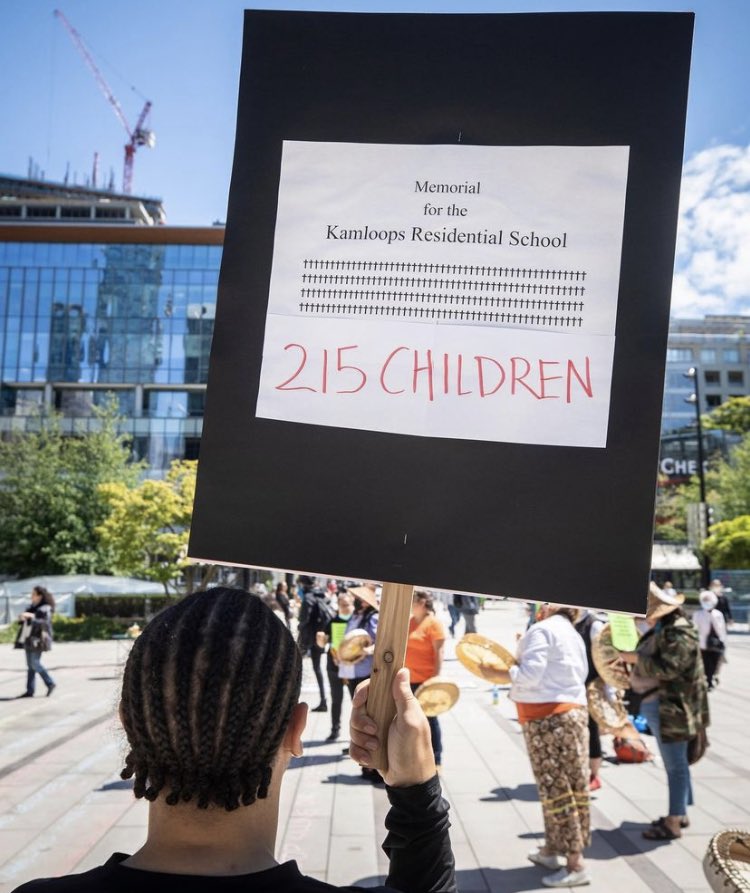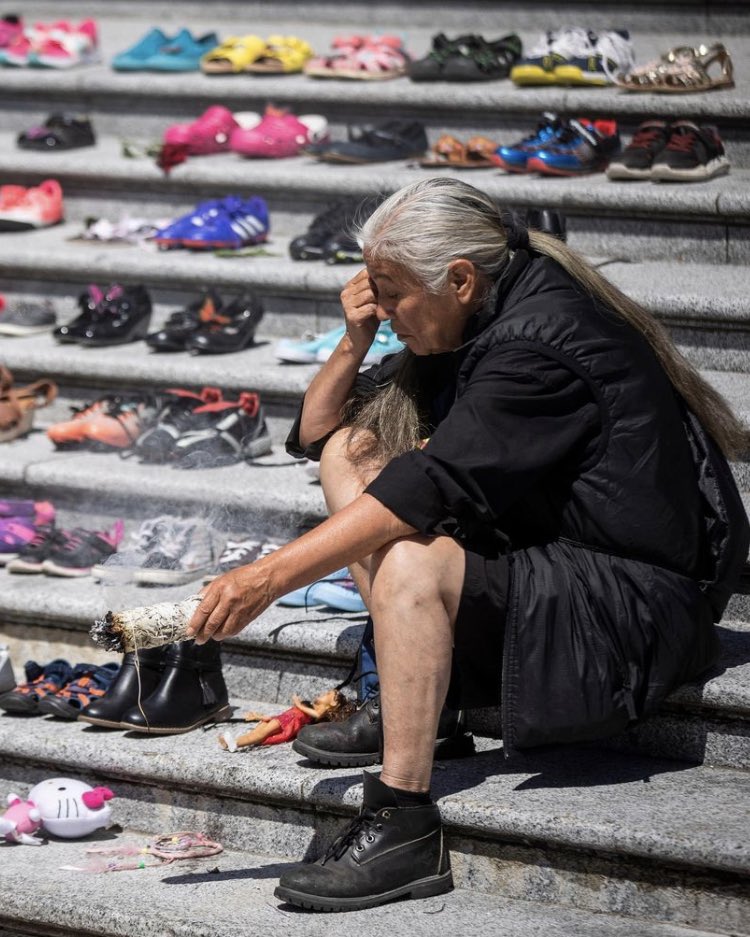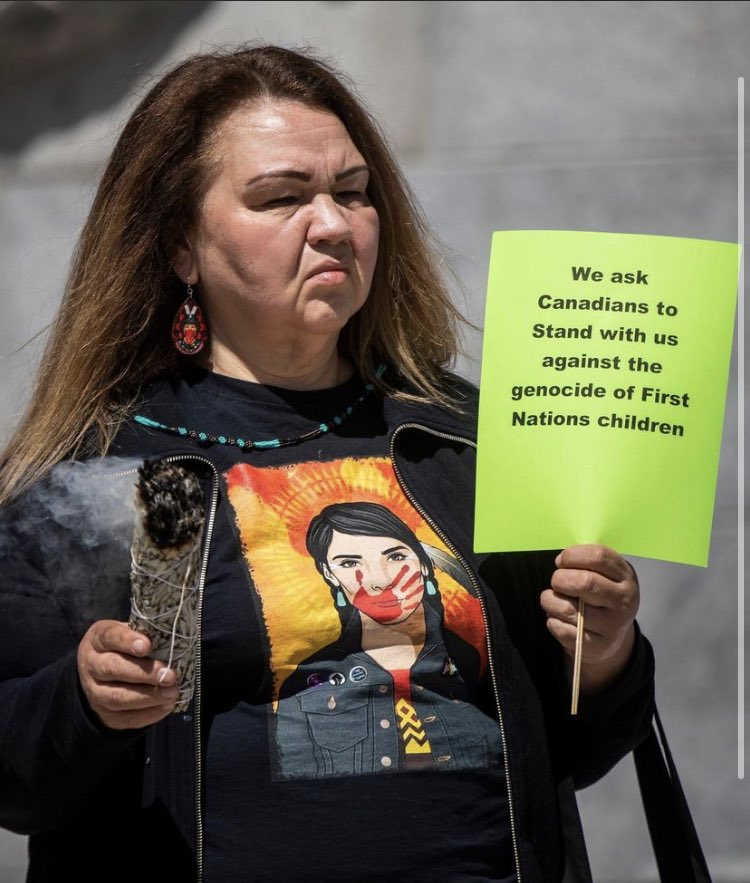
Photo credit (Twitter: @TVRVNTO)
A mass grave was found at a residential school in British Colombia, Canada, containing the remains of 215 indigenous children on Friday.

Photo credit (Twitter: @TVRVNTO)
Chief Rosanne Casimir of the Tk’emlups te Secwépemc First Nation said that the remains, of children as young as 3 years old, were found with ground-penetrating radar. The Tk’emlups te Secwépemc continues to work with specialists and coroner’s office to establish the cause of death and an estimate of when it occurred. The deaths of these children was not documented by school administrators.
From the 19th century until the 1970s, more than 150,000 First Nations children were forcibly removed from their families to attend state-funded Christian schools as part of a program of genocide intended to destroy the Indigenous Peoples as culturally distinct group. Many schools were often underfunded and overcrowded with children said to be subject to abuse and mistreatment.

Photo credit (Twitter: @TVRVNTO)
In 2008, the Canadian government apologised in Parliament and admitted that physical and sexual abuse in the schools was rampant. Federal buildings across the country lowered their flags to honour the children.
Canadian Prime Minister, Justin Trudeau tweeted that the incident was “is a painful reminder of that dark and shameful chapter of our country’s history”, which drew widespread backlash stressing the actively ongoing genocide and systematic oppression of Indigenous people in Canada.
The news that remains were found at the former Kamloops residential school breaks my heart - it is a painful reminder of that dark and shameful chapter of our country’s history. I am thinking about everyone affected by this distressing news. We are here for you. https://t.co/ZUfDRyAfET
— Justin Trudeau (@JustinTrudeau) May 28, 2021
Trudeau released a statement yesterday marking the National Indigenous History Month, acknowledging the incident “is a painful reminder that the impacts of residential schools are still felt today” and that “we must all unreservedly acknowledge this truth and address these historical and ongoing wrongs, so we can build a better future.”

Photo credit (Twitter: @TVRVNTO)
Indigenous activists have stated that legacy of abuse and isolation and as the root cause of epidemic rates of alcoholism, drug addiction and suicide among their communities.
Read more here.




